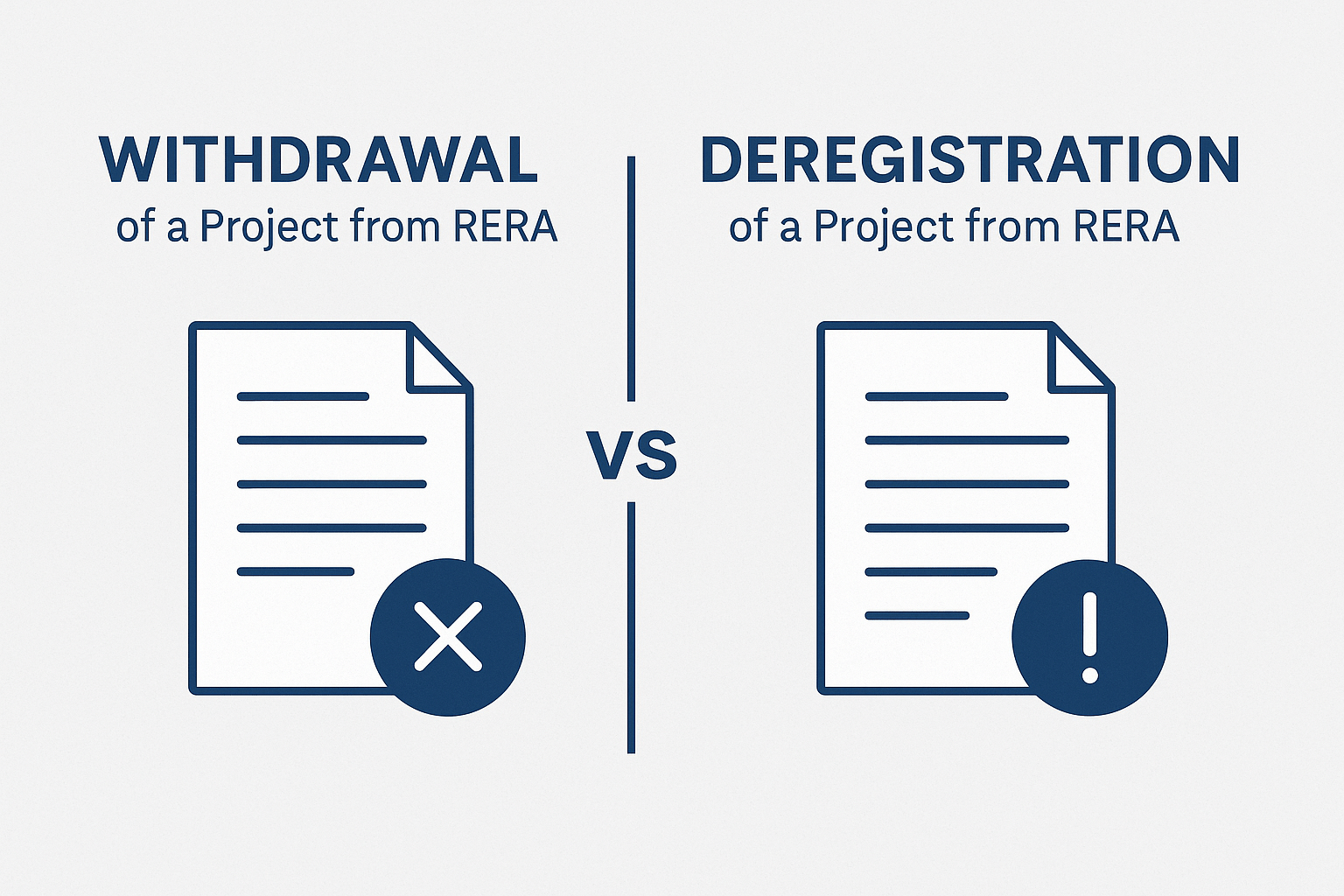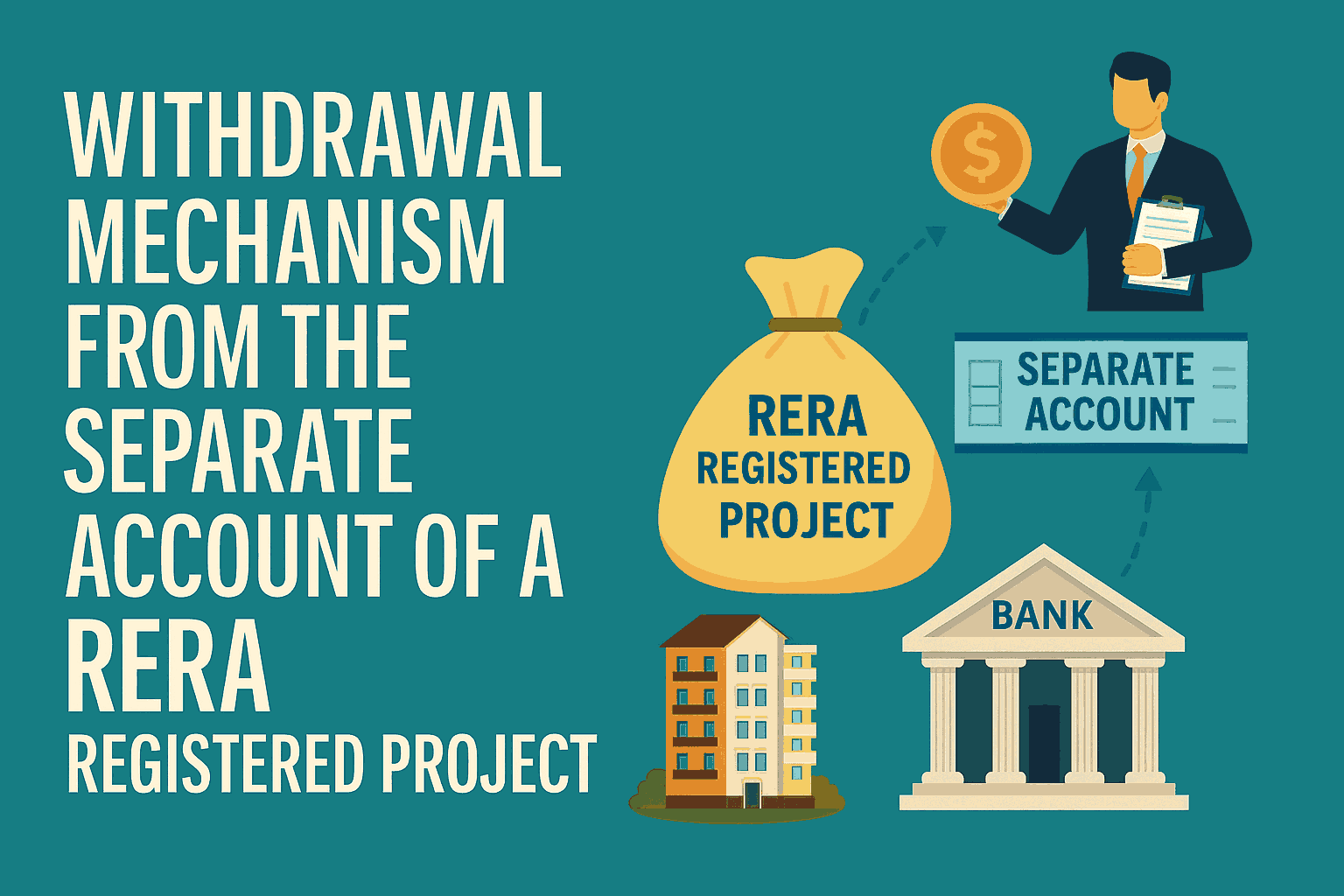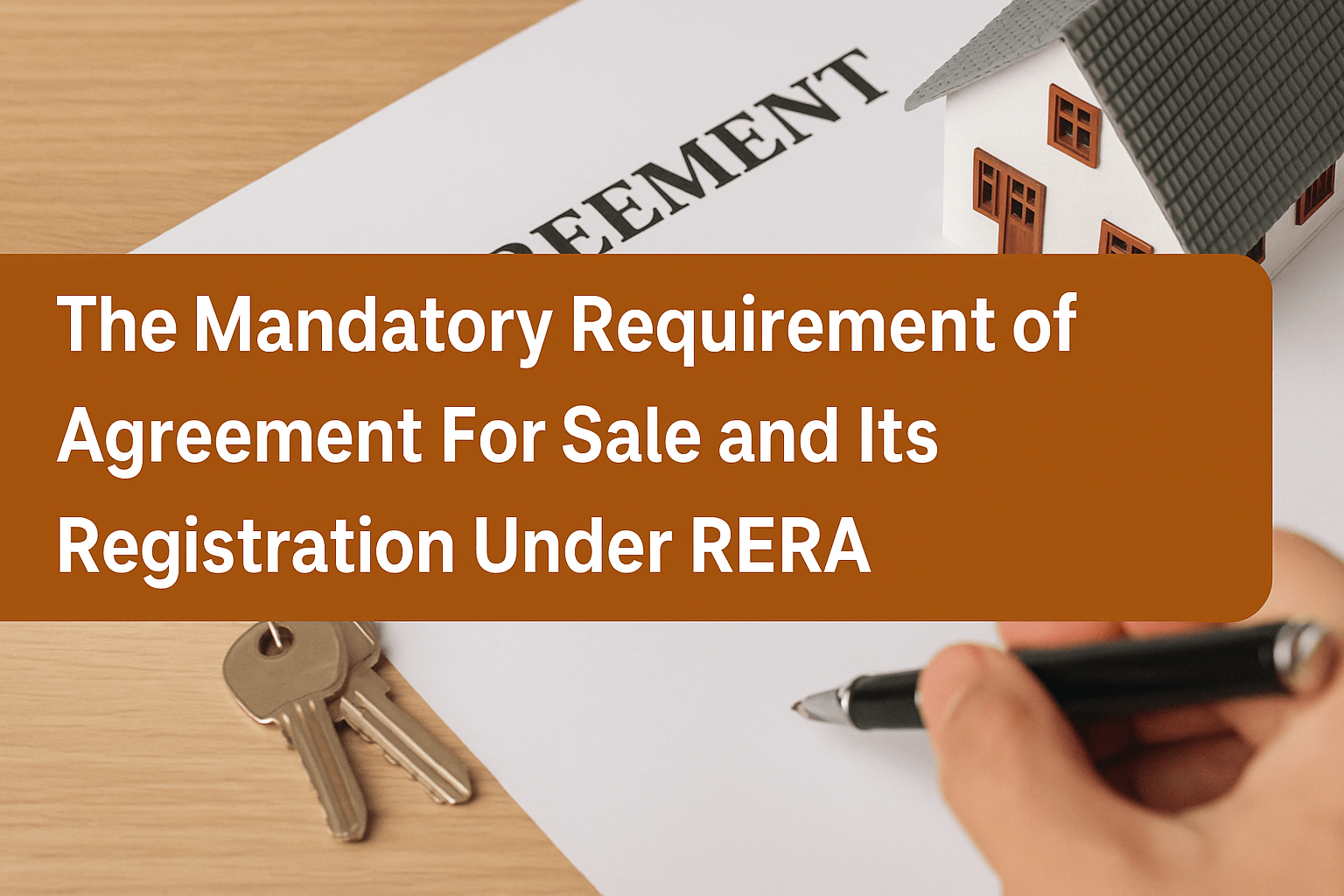
The Real Estate (Regulation and Development) Act, 2016 (RERA) provides a strong regulatory framework to ensure transparency, accountability, and protection of homebuyers. Among its many provisions, two concepts often create confusion for promoters and professionals alike: Withdrawal of a Project and Deregistration of a Project.
Although the terms may sound similar, they are distinct in intent, process, and consequence.
Let us understand the differences.
1. Withdrawal of a Project
Withdrawal refers to the voluntary act of a promoter to withdraw the application for registration of a real estate project. This is usually done before the registration is granted or before the project progresses significantly under RERA oversight.
Common Scenarios:
Key Points:
2. Deregistration of a Project
Deregistration is a much more serious process. It refers to the cancellation of an already registered project by the Authority. This is not voluntary, but rather a regulatory action.
Common Scenarios:
Key Points:
3. Caution on Terminology
In practice, some State Authorities use the terms Withdrawal and Deregistration interchangeably, which adds to the confusion. For instance, in Uttar Pradesh RERA (UP RERA), both terms are found in use in different contexts. However, their substance remains distinct: withdrawal is promoter-led and voluntary, while deregistration is regulator-led and punitive.
4. Why the Distinction Matters
For promoters, professionals, and homebuyers, understanding the difference is critical:
While both withdrawal and deregistration result in a project not continuing under RERA, the cause, process, and implications are very different. Withdrawal is voluntary and relatively benign, while deregistration is regulatory and carries serious consequences.
CA Akash Jaiswal
Chief Advisor
Apex RERA Professionals
Contact


Apex RERA Professionals is owned by Realtyedge Professionals LLP.